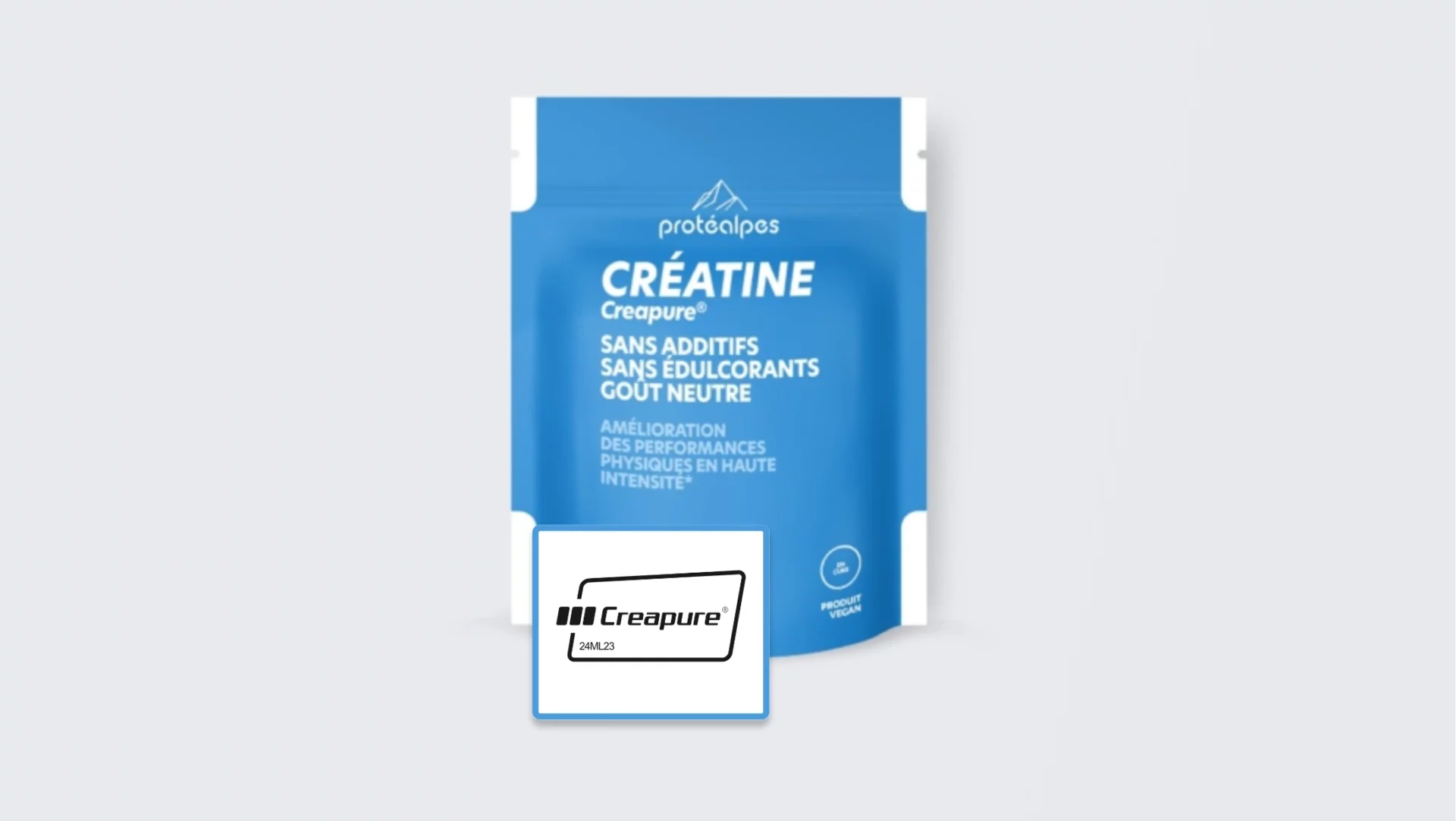Creatine does not cause erectile dysfunction or sexual dysfunction. No research has shown any direct negative effect on erectile function or libido.
Let's start by understanding exactly what creatine is and its role in the body...
Creatine: how does it work?
Creatine is a molecule naturally present in our bodies, playing an essential role in the production of rapid energy during intense physical effort.
Our bodies naturally produce around 1g of creatine a day, from three amino acids: arginine, glycine and methionine.
This production takes place mainly in the liver and kidneys. Another part of our needs is covered by the diet, notably via certain creatine-rich foods such as red meat or fish, up to 10g / kg.
95% of creatine is stored in our muscles in the form of phosphocreatine. During intense, brief exertion, phosphocreatine enables the rapid regeneration of ATP, the main source of cellular energy.
Many athletes choose to maximize their creatine reserves by taking a supplement to improve their performance.
Here are the main effects of creatine monohydrate supplementation:
- Increased muscle phosphocreatine reserves
- Improved maximum strength for short efforts lasting less than 30 seconds
- Optimizing recovery
- Possible increase in training volume
Creatine has no immediate effect! It takes around 5-7 days of regular supplementation to see the first benefits of creatine.

Does creatine really affect erectile function?
To date, there are no scientific studies demonstrating a link between creatine consumption and erectile function disorders.
This misunderstanding probably stems from confusion between creatine and anabolic steroids. The latter affect natural testosterone production and therefore erectile function. But creatine has nothing to do with steroids!
Creatine is not a doping product, but a natural nutrient essential to our metabolism. It is the most widely studied dietary supplement after protein powder.
No studies have reported any impact on libido, erectile function or fertility.
Erectile dysfunction can have many causes, including:
- Stress and anxiety
- Excessive fatigue
- A poor diet
- Certain medications
- Cardiovascular problems
The real risks of creatine
Contaminated supplements: the importance of traceability
The real danger comes not from creatine itself, but from poor-quality supplements potentially contaminated with other harmful substances.
Many dietary supplements contain traces of banned substances. These contaminants may include undeclared anabolic steroids or stimulants.
It's important to ensure the traceability of your supplement, to guarantee quality and avoid unintentional health risks.
Today, the Creapure® label is the benchmark for quality and safety:
- Made exclusively in Germany in a dedicated factory
- Regular checks by independent laboratories
- Total absence of cross-contamination
- Purity greater than 99.9%.
At Protéalpes, we ensure complete traceability of the production chain: from the synthesis of a Creapure® creatine in Germany to final packaging on our premises!

The real side effects of creatine
Pure creatine has very few side effects when used correctly, but some athletes observe :
- Initial weight gain: on average 1-2 kg during the first week, due to intracellular water retention linked to creatine entry into the muscles. This effect is natural and temporary.
- Intestinal problems : mainly during the loading phase (20g/day). To minimize this risk, we recommend taking it several times a day.
Tips for optimum use
Creatine is recommended for athletes who have already optimized their diet and training. It is recommended to stay hydrated, without drinking more water than necessary, and to follow a cyclical creatine cure with breaks of at least 4 weeks to remain sensitive to the supplement. Creatine should be taken daily, including on rest days.
To conclude
Creatine is a substance which improves sporting performance by acting on muscle energy metabolism, without any significant hormonal impact. The real risk lies in using poor-quality or contaminated supplements.
Further information
Wondering what the difference is between creatine and creatinine? Our article on the difference between creatine and creatinine explains these two often-confused compounds in detail.
For those who consume coffee regularly, find out if the combination of creatine and caffeine can influence the results of your supplementation.
Some athletes are concerned about the potential effects of creatine on tendons. Our article on creatine and tendonitis reviews current research in this area.
Wondering about the best time to take your creatine? Check out our guide "Taking creatine before bed", which analyses the pros and cons of taking it at night.
For those who train intensely, our article "Creatine and pre-workout" will help you understand how to optimize these two supplements to maximize your performance.
Finally, if you follow a particular diet, our article on vegan creatine explains how to integrate this supplement into a vegan lifestyle.















